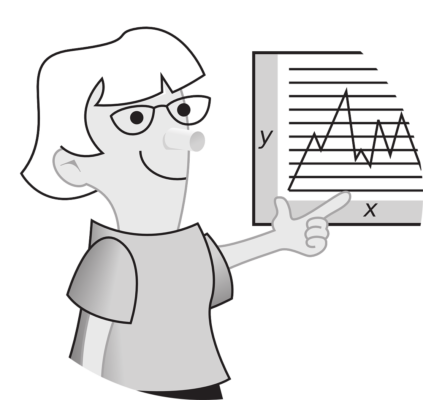Finesse your French: overcoming the intermediate French learning plateau – part 4

So far, you’ve made great progress on your French language learning journey. Well done! You’ve overcome your initial frustration, moved beyond the basics, and discovered links between French language and culture. Now, though, you might have hit the French learning plateau. It can feel like the hard work you’re doing at this stage is going nowhere…
But luckily, we’ve all been there too – and we’re here to help you! Here’s how to overcome that frustrating plateau and advance into intermediate French learning.
What is a learning plateau? 
After putting in all that hard work, nothing is more frustrating than the feeling that you’ve hit a wall – that all your effort has been for nothing.
But there’s good news.
Practically everyone learning a new skill will reach a plateau sooner or later – you’re not alone!
BrightHubEducation describes a learning plateau as:
That flat part of a learning curve which comes after rapid progress initially.
In other words, it’s that point where you feel like you’re no longer progressing as well as you used to.
Explaining the learning plateau: why do I feel stuck?
A definition of the problem is all very well, but the real question is:
- Why isn’t your French advancing anymore?
- Why do you feel stuck, helpless, bad at languages, or even just too old?
Let’s establish some factors that aren’t contributing: you’re not too old!
The Guardian points out that although older language learners do face additional challenges, they also have some serious advantages over younger learners – especially when it comes to vocabulary. Furthermore, being ‘bad at languages’ generally isn’t considered a legitimate problem these days. It’s becoming obvious that we are hardwired for language since “language universals are encoded in human brains.”
And as for the feelings of being stuck or not making progress, don’t worry: you almost certainly are advancing!
As Marie Vicarini and others point out, the more of a language you learn, the less obvious your progress will seem.
But why?
Well, you’re adding more knowledge to an already large pile. Essentially, the more you learn, the more you have to rely on existing information to learn more. So, it feels as though you aren’t moving forward at the same rate as before. Frustration and a resulting lack of motivation come into play here too. It all can lead to a vicious cycle – unless you break out of it!
What to do about your French learning plateau
Of course, ‘breaking out’ of your French learning plateau isn’t as simple as it sounds. It’s easy to feel overwhelmed by all the advice out there, but it boils down to staying focused while also diversifying.

Although many personal factors could be contributing to your plateau, some points are universal:
- As Lingholic points out, “getting constant and immediate feedback on [your] performance” is a must – be it from tutors, online conversation exchange partners, or even yourself.
- Recording your French speech and listening to it later may sound painful, but you’ll be amazed at how much progress you’ll make.
- And as famous polyglot Benny Lewis suggests on Fluent in 3 Months:
If it isn’t working to genuinely bring you noticeably forward, ditch it right now.
Experts agree that it’s vital to find your biggest language learning problem and attack it directly with your new strategy. Just as you did at the beginning of your language learning journey, set yourself ambitious but reachable goals.
And just as you did before, work diligently to reach and surpass those goals – the benefits to your brain alone are more than worth it!
How to keep advancing: update your French learning plan
Your ‘secret weapon’ when dealing with the French learning plateau is… yourself!
Although your learning strategies may need adjusting from time to time, that is a sign of your brain’s complexity as it works to break through your French learning plateau.
Your ingenuity will pull you through, as long as you keep your goals in sight and stay committed.
After all, learning French is an exciting journey – and checkpoints like these are perfect for rediscovering that excitement. So, keep moving forward; your journey will only get more exciting!
Have you had any experience with ‘hitting the wall’ of the French learning plateau? Which strategies have helped you? Post your story in the comments section below and remember to share this series with your French-loving friends!
Enjoyed this article?
Currently at a different level of French learning?
Click through to discover more articles in our ‘Finesse your French’ series:
You CAN learn French this time: a breakthrough method – introduction
How to overcome your French learning frustration – part 1
Moving beyond French conversation basics – part 2
French language and culture – part 3
The intermediate French learning plateau and how to overcome it – part 4 – this article
How to make French grammar easy – part 5
How to engage with contemporary France – part 6
How to push towards French fluency – part 7
How to have advanced French fun – part 8
How to maintain and build your advanced French skills – part 9
Image credits
1. Chart by OpenClipart-Vectors, via Pixabay
2. Frustration, via Unsplash
3. Chalkboard by geralt, via Pixabay
4. Desk, via Unsplash Content credits:
This series was compiled with the substantial support of Alex Ray
as part of his internship with MyFrenchLife.org









I’ve hit a number of plateaus in my own French learning and yes they can be discouraging. But I’ve also found a flip side, which is that sometimes I fell like I make a sudden jump in my level of French. It’s like instead of a steady upward trend I improve in fits and starts, with flat spots in between the jumps. So now when I hit a plateau, I just remind myself that it’s temporary and I’m actually still on track.